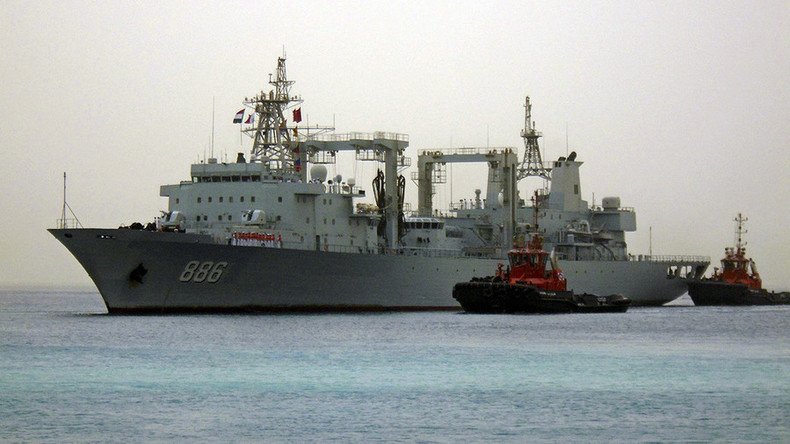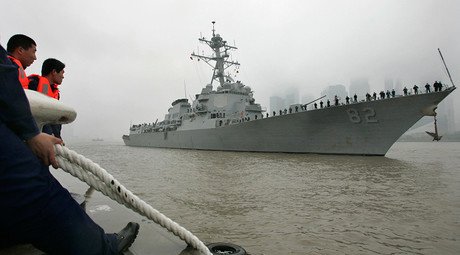Beijing holds new round of war drills in South China Sea

The Chinese Navy is flexing its military muscle in the South China Sea with its latest round of drills. Disagreements persist with Japan and others over a large portion of the region, with the US parading its military not helping to alleviate the tensions.
"The People's Liberation Army Navy in recent days organized a fleet to go to relevant waters in the South China Sea, by way of the Western Pacific, to carry out exercises," the Defense Ministry said in a statement. "This action is a routine arrangement made in accordance with this year's naval training plan."
Chinese navy sent a fleet to the #SouthChinaSea as part of routine exercises, Defense Ministry said on Sunday pic.twitter.com/av4DIyoeyN
— CCTVNEWS (@cctvnews) December 13, 2015The Chinese did not say exactly where the current exercises took place, posting only pictures via official state media accounts.
With most Chinese export and import operations using South China Sea routes, the region is of crucial importance to the world’s second largest economy. Of particular importance to China are the disputed Spratly islands. Critics say Beijing is preparing the artificial islands as military outposts. But China insists that civilian development is its primary goal in the area also disputed by Vietnam, the Philippines, Malaysia, Taiwan and Brunei.
The situation was further complicated by Washington, whose USS Lassen passed through a 12-mile limit around Subi Reef in the Spratly Islands archipelago in late October. The reef is one of seven that China has artificially reinforced to support its claim on the archipelago and the sea around it.
In November, two US B-52 strategic bombers flew near China’s artificial islands, ignoring calls to “get away” from Beijing’s airspace. The Pentagon said this was a “routine mission” in accordance with international treaties.
The incidents led to a heated exchange with Washington. The Americans said they would continue with their practices and Beijing hinted they could use force to expel nations illegally occupying its islands in the South China Sea. However, so far the Chinese are showing restraint.
“In recent years, the South China Sea disputes, which should have been addressed by directly concerned countries through negotiation and talks, have been played up to become a problem concerning the South China Sea's peace and stability and the freedom of navigation,” Xinhua quoted Chinese Prime Minister Li Keqiang as saying in Kuala Lumpur late on Saturday. The comments came while the Chinese leader was addressing a China-ASEAN leaders' meeting in late November.
Continuing confrontation “is in nobody's interest,” the Chinese prime minister said, adding: “Only by expanding our common interests and seeking common ground can we narrow our differences.”













